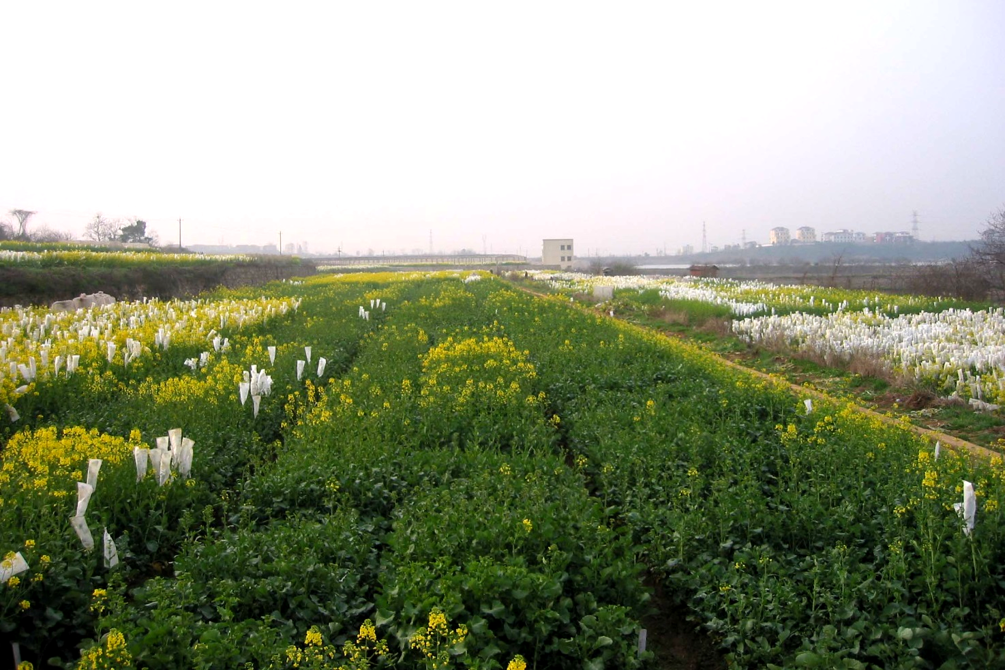Welcome to BnPedigome, A genomic database for the pedigrees and breeding of Brassica napus.
Brassica napus (AnAnCnCn) is an important oilseed crop as the third largest source of vegetable oil, and has huge potential of biodiesel. It was initially cultivated in Europe since 1300’ as a leaf vegetable or grown as a leafy fodder crop, and then cultivated as oilseed crop from the beginning of 19’s. Because of its great advantage on seed yield and resistance, it was introduced from Europe to Asia, Canada, and Australia, and dominates 90% of the worldwide rapeseed production nowadays. B. napus is an allotetraploid derived from the nature interspecific crosses between the diploid progenitors, B. rapa (ArAr) and B. olereaca (CoCo) around 7,500 years ago (Chalboub et al. 2014).
Genomic information from B. napus pedigrees are very important for rapeseed breeding and provide a nice model for investigation for origin of rapeseed and breeding consequence (footprint) on genome of the allopolyploidy crop.
Ningyou7 pedigree:
In China, from the 1950’s, the oilseed crop B. rapa with several thousand years of cultivation history were extensively replaced by B. napus after importing the cultivars from Japan, which were unified named as “Shengliyoucai” (SL) actually including series of cultivars from Japan. Approximately 80% of the cultivars developed during the period of 1980’s in China were derived from SL by single plant selection. A lot of cultivars were further bred based on SL with introgression of B. rapa, which was a frequent approach to broaden the genetic diversity and improve the local adaptation of B. napus in Asia.
Ningyou 7 (NY7) is an elite semi-winter cultivar in Yangtze regions, China in 1980s. As other Asian cultivar, it originated from SL and introgression of a B. rapa landrace “Chengduai” (CDA), which have fundamental or founder impacts for local adaptation and trait improvement of Asia rapeseed, and was further improved with other genetic resources. It has high seed glucosinolate and erucic acid and still not experienced double-low breeding. Therefore, NY7 and its pedigree provide a nice model for investigation for origin of Asia rapeseed and breeding consequence on genome (footprint) of an allopolyploidy crop.
How to cite this database:
Genome-wide selection footprints and deleterious variations in young Asian allotetraploid rapeseed. Jun Zou#, Lingfeng Mao#, Jie Qiu#, Meng Wang, Lei Jia, Dongya Wu, Zhesi He, Meihong Chen, Yifei Shen, Enhui Shen, Yongji Huang, Ruiyuan Li, Dandan Hu, Lei Shi, Kai Wang, Qian-Hao Zhu, Chuyu Ye, Ian Bancroft, Graham J King, Jinling Meng, Longjiang Fan*. Plant Biotechnology Journal, 2019.



 More
More